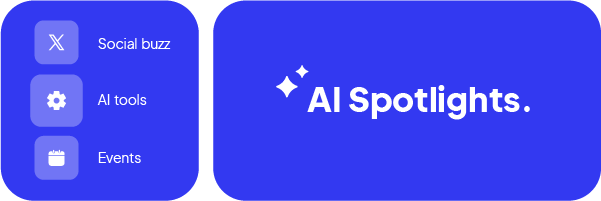In a landmark move, The New York Times Company has entered a multiyear agreement with Amazon to license its editorial content for use across Amazon’s AI platforms. The deal includes not just news articles, but also content from NYT Cooking and The Athletic.
This marks the first time The Times has licensed its content specifically for generative AI use.
In a twist of irony, The Times sued OpenAI and Microsoft in 2023 for allegedly using its content to train AI models without permission. Fast-forward to now, and it's forging a paid arrangement with another tech giant.
Financial terms were not disclosed. But according to The Times, the agreement ensures that excerpts used on Amazon platforms like Alexa will include attribution and links back to the original content. Amazon may also use the material to train its proprietary AI models.
CEO Meredith Kopit Levien stated, “The deal is consistent with our long-held principle that high-quality journalism is worth paying for.”
Amazon has not provided further comment beyond what was shared by The Times.
Opera unveiled Opera Neon, its new AI-powered “agentic browser” designed to interpret user intent and perform complex tasks directly in the browser environment. Billed as a reimagining of the traditional web browser, Neon integrates native AI agents that can search, summarize, automate, and even create on users’ behalf.
Opera Neon introduces features such as:
- Conversational AI interface embedded in the browser
- Automation of routine tasks, like filling forms and booking travel
- Cloud-hosted AI agents that can generate code, reports, or entire websites, and continue working while the user is offline
- Local task execution, emphasizing privacy and security
Henrik Lexow, Senior AI Product Director at Opera, described Neon as “a collaborative platform to shape the next chapter of agentic browsing.”
Opera Neon will be offered as a premium subscription. Early adopters can join the waitlist.
3. Claude Rolls Out Free Voice Mode for Mobile App Users
Anthropic has officially launched Voice Mode for its Claude AI app on both iOS and Android. Rolling out in beta across all plans — including free tiers, the feature allows users to talk to Claude AI conversationally using natural speech instead of typing.
The new voice functionality includes:
- Customizable AI voices
- Real-time voice interaction with contextual summaries
- Seamless switch between voice and text during a conversation
- Daily message limits for free users (20–30 voice messages), with expanded access for Claude Pro and Max subscribers
Advanced users will also benefit from integration with Gmail, Google Docs, and Calendar, enabling Claude to support more complex productivity tasks — all through voice.
This update puts Claude on equal footing with ChatGPT, Google Gemini, and Copilot, offering an increasingly hands-free, multimodal AI experience.





